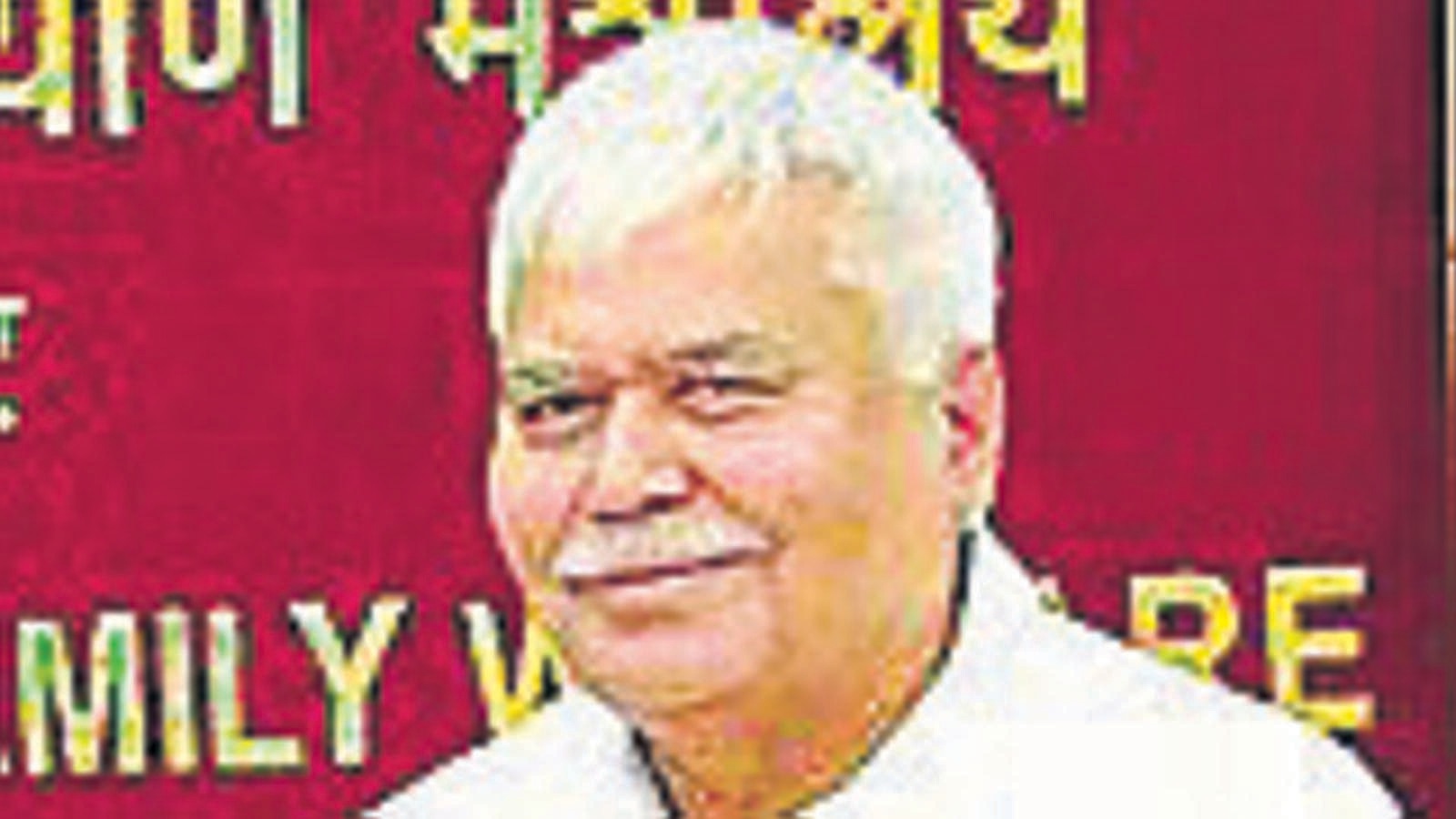No central storage of data, onus on hospitals to keep it safe: RS Sharma on Unique Health id | Latest India News
There will be no central vault to store health data of patients who use Ayushman Bharat Health Account (ABHA) numbers, it will be the responsibility of affiliated hospitals to store and protect the data, said the head of the National Health Authority, RS Sharma, in an interview with HT.
The unique ABHA number is generated as part of the Ayushman Bharat Digital Mission (ABDM), which aims to develop the backbone needed to support the country’s integrated digital health infrastructure.
“It will bridge the existing gap between different stakeholders in the healthcare ecosystem through digital highways,” Sharma said. ABDM is expected to complete a year of its launch on September 27.
India’s health data management policy acts as a guiding document for the national digital health ecosystem, Sharma said. “It defines the minimum standards of data privacy protection, which must be met by ABDM participating entities. However, as ABDM follows the principle of federated architecture, responsibility for the storage of health data and their respective compliance with confidentiality and data protection standards are entirely the responsibility of healthcare professionals and institutions.
The “retention period of different types of data” is currently regulated by their respective laws, rules and regulations, Sharma said. “For example, the Prenatal Prenatal Diagnostic Techniques (Prohibition of Sex Selection) Acts 1994 mandate the retention of relevant health records for two years, or the IMC (Professional Conduct, Etiquette and Ethics) Regulations 2002 mandate keeping patients indoors records for a period of three years,” he said.
Changing these laws and regulations is beyond the purview of the health authority, Sharma said.
“As critical health data is widely digitized across the country following the Ayushman Bharat Digital Mission, the National Health Authority has recently released the Draft Health Data Management Policy version 2.0,” said Kazim Rizvi, founder of The Dialogue, a think tank. . “Following NHA data sharing guidelines, the digital health ecosystem has several safeguards against the violation of individuals’ privacy. The Data Management Policy grants data controllers the right to portability, access, confirmation and disclosure. It also clarifies that entities must also comply with any upcoming data protection regulations.
So far, over 243 million ABHA numbers have been created. Many people have discovered that their ABHA number was created without their consent.
In response to this, Sharma said people were asked during the Covid-19 pandemic vaccination campaign if they wanted to create an ABHA number. “In case a number has been created, it is the user’s choice whether to share it or not. The ABHA number only collects minimal data – name, gender, age and means of communication.
At the same time, he stressed that privacy is a fundamental right. It will be up to the user whether or not to share the data, Sharma said.
“There is a consent manager built into the system. The patient must agree to share the data, which is equivalent to agreeing to share physical records. This requires their explicit consent,” he said. “The NHA will ensure minimal data collection.”
“It will also be interesting to examine how consent managers are regulated within the healthcare ecosystem, in tandem with the account aggregators used by the Reserve Bank of India,” Rizvi said. “Consent aggregators will be a crucial part of the dashboards that citizens will have access to.”
Talking about the digital ecosystem that the ABDM aims to create, Sharma said that it will generate a register of health providers, professionals, medicines and nurses. “It will be the cornerstone of a digital health system,” he said.
Referring to data sharing with decision makers, Sharma said only anonymized metadata will be shared. “Metadata or aggregated anonymized data will help identify, verify and deliver targeted health services. For example, if the sale of paracetamol increases in an area, it is possible that many people suffer from fever. In this case, health services can be better administered in these areas,” he said. “An individual’s privacy will not be compromised.”
Regarding the next project, the Health Stack, Sharma said it will aim to create an interoperable and seamless health experience. “Once the registry, which contains five items, is completed, it will be easier for users to use health services,” he added.


Comments are closed.